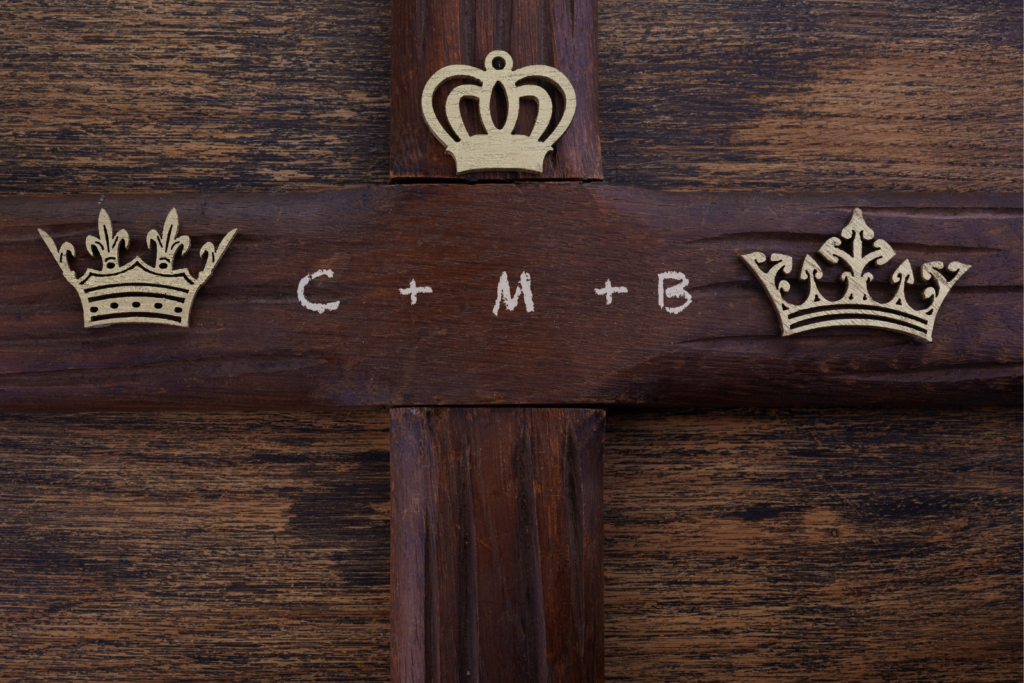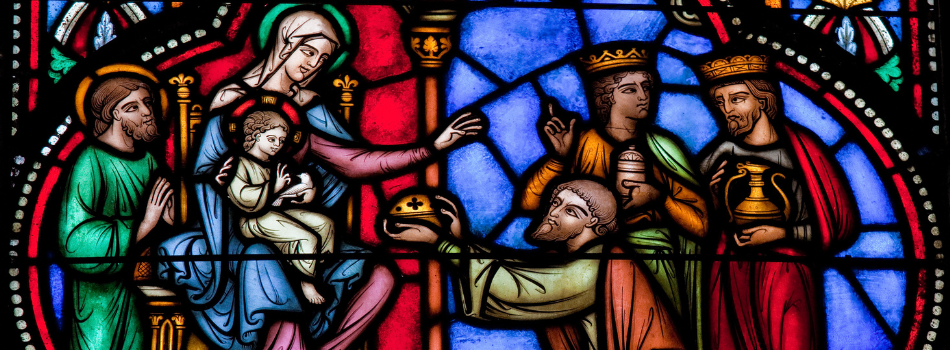By Fr. Anthony Stephens – CPM, Rector of the National Shrine of Our Lady of Champion
“Rise up in splendor, Jerusalem! Your light has come, the glory of the Lord shines upon you.
See, darkness covers the earth, and thick clouds cover the peoples; but upon you the LORD shines, and over you appears his glory. Nations shall walk by your light, and kings by your shining radiance.” Isaiah 60:1-3
These opening lines from the first reading on the feast of the Epiphany describe well the mystery that we celebrate this week of the Christmas season. The light of a star rose in the sky, and it was a signal to the Wise Men from the East to begin their journey seeking the newborn king. While this light was physical, it led the way to something more for the world: the child who is a moral light who will pierce the darkness of sin.
The celebration of the Epiphany is a yearly remembrance of Christ’s manifestation to the world. It is also an annual preparation for the “final epiphany” when He comes again in His glory at the end of days.
Looking to learn more about this beautiful tradition in the Church? Here are five things to know about the Epiphany!
1. Epiphany and Three Manifestations of His Glory
The word “epiphany” comes from the Greek term for “revelation” or “manifestation.”
As the Church meditates on the birth of Christ in this Christmas Season, there are three manifestations of the Lord upon which we meditate.
On the night of His birth, the Lord is hidden and only made known to His parents and the shepherds at Bethlehem. So, the first official manifestation to the world of the Newborn King is to the three wise men as they sought Him out to adore Him (Matt. 2:1-12). The traditional date for this manifestation is January 6.
The subsequent two manifestations are events from later in Christ’s life. The second manifestation is from Christ’s baptism in the Jordan River, with the Father’s voice announcing the coming of His Beloved Son (Matt. 3:17). Each year, the celebration of the Baptism of the Lord ends the Christmas Season.
The final manifestation of His glory is the working of His first public miracle at the Wedding Feast of Cana (John 2).
2. Wise Men or Three Kings?
Since the earliest years of the Church, there has been debate whether these three were actually kings. Their exact identity is less important than the fact that they were men who went to great lengths to seek the truth associated with the rising star. Their journey led them to discover that the truth isn’t something, but it is Someone. They set an inspiring example for all of us to pursue truth in our lives. Though Scripture does not give us their names, it is traditionally held that their names were Caspar, Melchior, and Balthasar.
3. House Blessings
The ancient tradition of blessing homes and chalk in association with the Feast of the Epiphany goes back centuries. Holy Mother Church continues to encourage this yearly practice as a means of sanctification for the “domestic church.” Many parishes provide chalk and Holy Water for families to take home to bless the interior and exterior of their homes.

The Directory on Popular Piety and the Liturgy, #118 states: the blessing of homes, on whose lentils are inscribed the Cross of salvation, together with the indication of the year and the initials of the three wise men (C+M+B), which can also be interpreted to mean “Christus mansionem benedicat,” written in blessed chalk; this custom, often accompanied by processions of children accompanied by their parents, expresses the blessing of Christ through the intercession of the three wise men and is an occasion for gathering offerings for charitable and missionary purposes.”
This year (2025), the appropriate way to mark the door lintel in a place that has been blessed is “20+C+M+B+25.”
4. Why a Yearly Blessing?
A person may ask: is it necessary to bless our home every year?
Yes. We bless homes each year because of the wear and tear on our spiritual lives. There is a parallel with the sacrament of Confession here. Holy Mother Church asks Catholics to go to Confession at least once a year (or if they have committed a mortal sin, to go to Confession as soon as possible.) The spiritual “wear and tear” of life can be healed when receiving this sacrament regularly. The point of Confession isn’t to never go to Confession again. The point of Confession is to receive forgiveness of sin and other unique graces available to the penitent in this sacrament.
With regard to home blessings, we should desire God’s blessing on us and in our homes. The chalk marks on our door lintels remind ourselves and others that Christ is the King of this home and our lives.
With that in mind, hopefully, the way we act around one another, the daily prayer life, the television we watch, the way we play, the way we work, and our whole lives are lived for the glory of God. Maybe we’ve had a rough year? A home blessing can be a great consolation for the family.
5. Modeling the Holy Family
As the Holy Family received the Three Wise Men to their homes, we invoke their intercession on behalf of our families this season as we celebrate the Lord’s birth. Let’s begin the new year well, asking the blessing of almighty God on our families and homes.
We encourage you to visit Champion Shrine on the Feast of the Epiphany to honor the Holy Family and ask Our Lady of Champion, the Queen of Heaven, to intercede for us this year. Blessed chalk and Epiphany Water will be available for pilgrims to bring home after Mass on Epiphany Sunday!
Plan your pilgrimage today at championshrine.org/visit.


